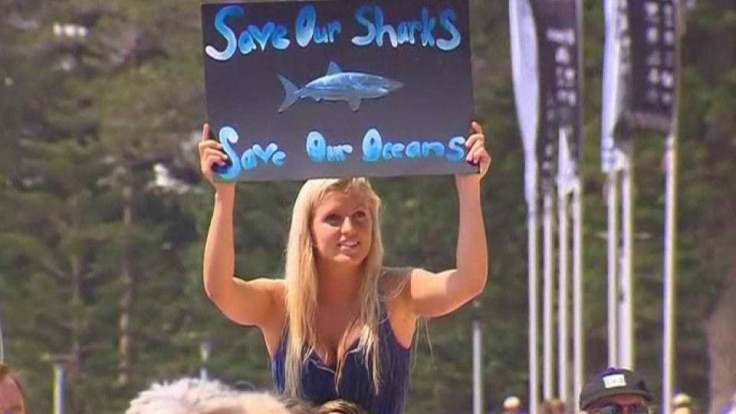Shark Cull in Western Australia May Disrupt Marine Ecosystem

The recent shark cull protests have triggered fears of disrupting the ocean's ecosystem if Western Australia is allowed to continue killing sharks. Since the first shark was killed on Australia Day, Jan 26, at least one more shark was killed while trapped in baited drum lines and smaller sharks were released after getting caught.
Western Australia's official cull comes following seven fatal shark attacks in the last three years. The most recent shark attack was in November 2013 when a 35-year-old surfer died.
According to local reports, authorities did not recover the body of a man who was attacked in one of Perth's popular beaches. Only his damaged swim trunks were left behind. Five of the seven attacks had been by Great White sharks.
While Western Australia's shark cull policy was meant to protect beachgoers, it has alarmed and horrified marine conservationists since it goes against the global effort to protect the declining shark population.
According to the New York Times, opponents of the cull policy have consulted lawyers to try and stop the policy. International celebrities have expressed their opinions about the issue.
Australian underwater cinematographer Valerie Taylor called Western Australia Premier Colin Barnett and other officials as "idiots." Ms Taylor is renowned for filming sharks with husband Ron Taylor. She shot several scenes for the 1975 blockbuster movie "Jaws" - a story about a great white shark attacking New England swimmers.
Sharks are common in Australian waters and are known to wander in popular beaches like Bondi Beach. Authorities have installed nets off the beaches to protect swimmers but the nets have become controversial in New South Wales for catching two sea turtles and two humpback whales. Marine animals trapped for too long might die.
Mr Barnett defends Western Australia's shark cull policy and said the state has tried monitoring and developing warning systems but they were not enough due to the growing population and their access to remote beaches.
To shark conservationists, the shark cull has a broader impact on the marine ecosystem. Sea Shepherd Australia managing director Jeff Hansen said sharks help control the population of other marine animals since they remove the weaker members of the population.
Mr Hansen added that if sharks were removed, the number of stingrays will increase which in turn lead to the eradication of scallops. One species affects the others who are also in the same ecosystem.




















